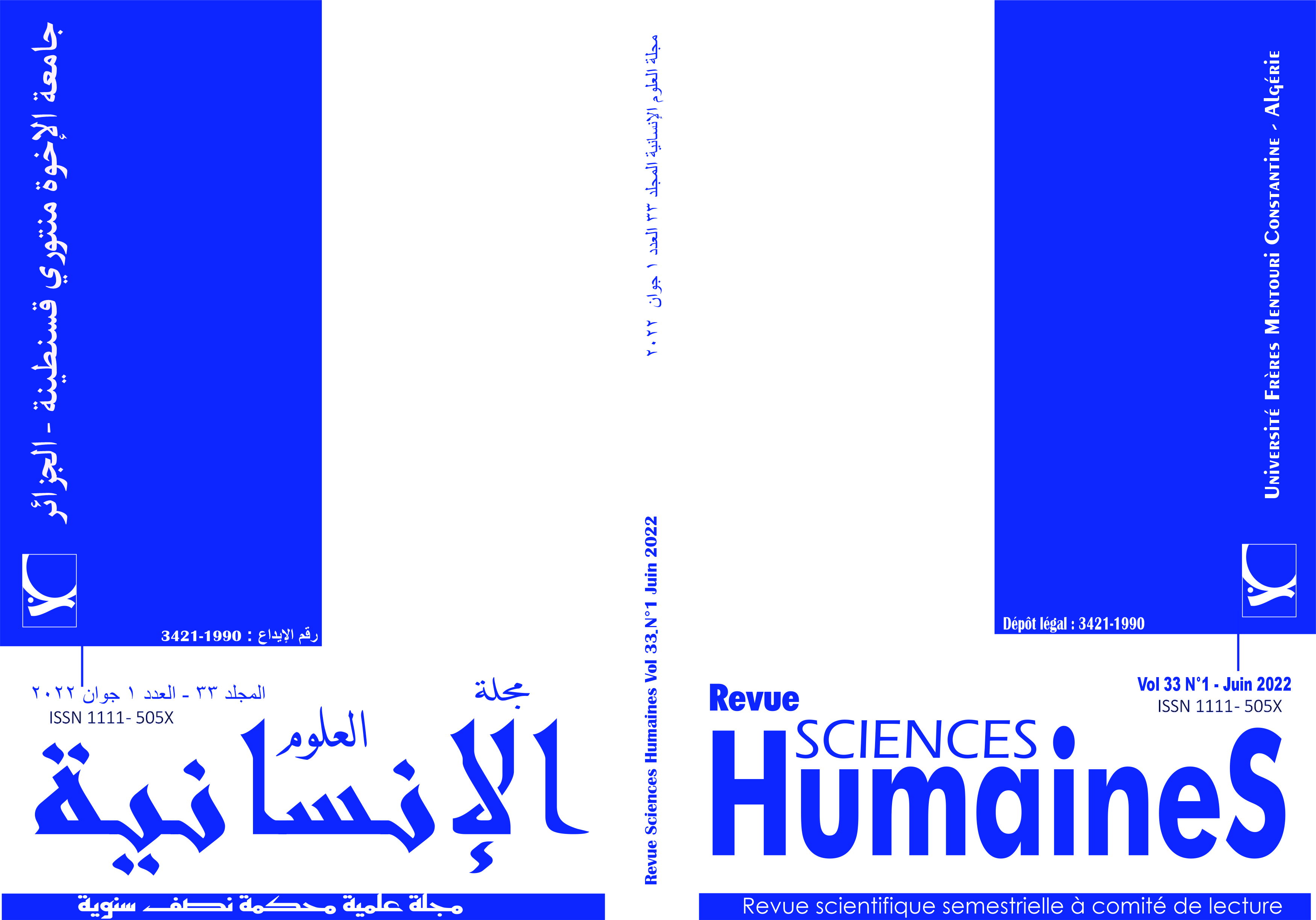The poetic witness and his use in interpreting the vocabulary of the Holy Quran
The interpretation of ibn Attia(d542H) as a model
Keywords:
A poetic witness, linguistics, vocabulary of the Holy Quran, Ibn Attia, el-mouharer al-wajizAbstract
The research presented the place of language in the interpretations of Maghrebs and Andalusians; its role in guiding semantics and meaning; the most important instrument of understanding and elicism in their interpretations, as a reaction to the multiplicity of different doctrines and linguistic differences and interprtatations of the holy Quran text, while most of the Maghreb and Andalus believe in the Achaari’s doctrine, ant the poetic witness has been the most important feature of the linguistic interpretation of the holy Quran, and the identification of the meaning semantics of words through the poems of the Arabs, above all the explanation (Al-mouharer Al-wajiz) of Ibn Attia al-andalusi (d542h); which became the source of most of the interpretations that came after him, and therefore we chose him as the subject of this research, this research was dedicated to presenting the evidence semantics of the semantics and vocabulary of the first part of it in the introductions of the book and the interpretation of sourate fatiha and Al-baquara.
Downloads
References
- القرآن الكريم برواية ورش عن نافع.
- ابن عاشور، محمّد الفاضل، التفسير ورجاله، دار الكتب الشرقية، تونس، ط2، 1972م.
- ابن العربي، أبو بكر، أحكام القرآن، تحقيق: علي البجاوي، مطبعة عيسى الحلبي وشركاه، ط2، 1387هـ.
- ابن تيمية، الحراني، مقدّمة في أصول التّفسير، تحقيق: عدنان زرزور، دار القرآن الكريم، الكويت، ط1، 1391هـ.
- ابن جزي، أبو القاسم محمّد بن أحمد الكلبي، التّسهيل لعلوم التّنزيل، تحقيق: اليونسي وإبراهيم عطوه، دار الكتب الحديثة، مصر، دت.
- ابن عطية المحاربي، أبو محمّد عبد الحقّ بن غالب بن عطية الأندلسي، المحرّر الوجيز في تفسير الكتاب العزيز، تحقيق: عبد السّلام عبد الشّافي محمّد، دار الكتب العلميّة، بيروت، ط1، 2001م.
- ابن عطية، عبد الحقّ بن غالب، المحرّر الوجيز في تفسير الكتاب العزيز، تقديم: مجد مكي، دار ابن حزم، بيروت، 2002م.
- أبو حيان، الأندلسي، البحر المحيط، دار الفكر، بيروت، ط2، 1403هـ.
- بن حمدة، عبد المجيد، المدارس الكلامية بإفريقية إلى ظهور الأشعريّة، دار العرب، تونس، ط1، 1986م.
- الثّعالبي، عبد الرّحمن، الجواهر الحسان في تفسير القرآن، تحقيق: عليّ محمّد معوّض وعادل أحمد عبد الموجود، دار إحياء التّراث العربي، بيروت، ط1، 1997م.
- الرّومي، فهد بن عبد الرّحمن، منهج المدرسة الأندلسيّة في التّفسير صفاته وخصائصه، مكتبة التّوبة، الرياض، ط1، 1997م.
- الطّرهوني، محمّد بن رزق، التّفسير والمفسّرون في غرب إفريقيا، دار ابن الجوزي، بيروت، ط1، 1426هـ.
- عبد الشّافي، عبد السّلام، ابن عطية وتفسيره المحرّر الوجيز، موقع قصّة الإسلام، إشراف الدّكتور راغب السّرجاني، 21/11/2020، 17:18. https://islamstory.com/ar/artical/3408264/
- الكنوني، عبد السّلام، المدرسة القرآنية في المغرب من الفتح الإسلامي إلى ابن عطية، مكتبة المعارف، ال
Downloads
Published
Issue
Section
License

This work is licensed under a Creative Commons Attribution-NonCommercial-NoDerivatives 4.0 International License.












